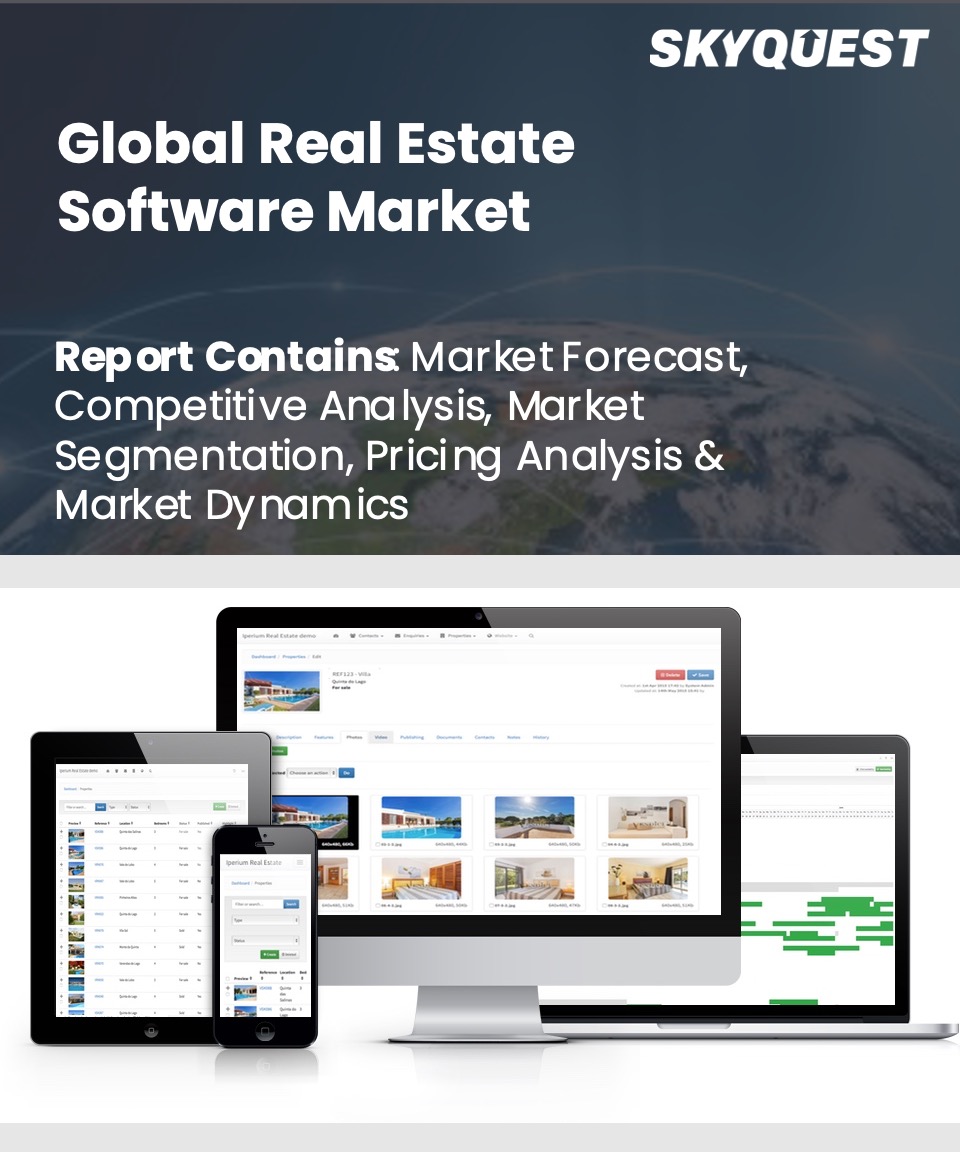
Report ID: SQMIG45E2184

Report ID:
SQMIG45E2184 |
Region:
Global |
Published Date: October, 2024
Pages:
157
|
Tables:
90 |
Figures:
76
Real Estate Software Market Driver
Increasing Demand for Smart Property Management Solutions
Rising Urbanization and Growth
Restraints
High Initial Costs and Implementation Challenges
Data Privacy and Security Challenges Impacting Market Growth
Our industry expert will work with you to provide you with customized data in a short amount of time.
REQUEST FREE CUSTOMIZATIONWant to customize this report? This report can be personalized according to your needs. Our analysts and industry experts will work directly with you to understand your requirements and provide you with customized data in a short amount of time. We offer $1000 worth of FREE customization at the time of purchase.

Report ID: SQMIG45E2184